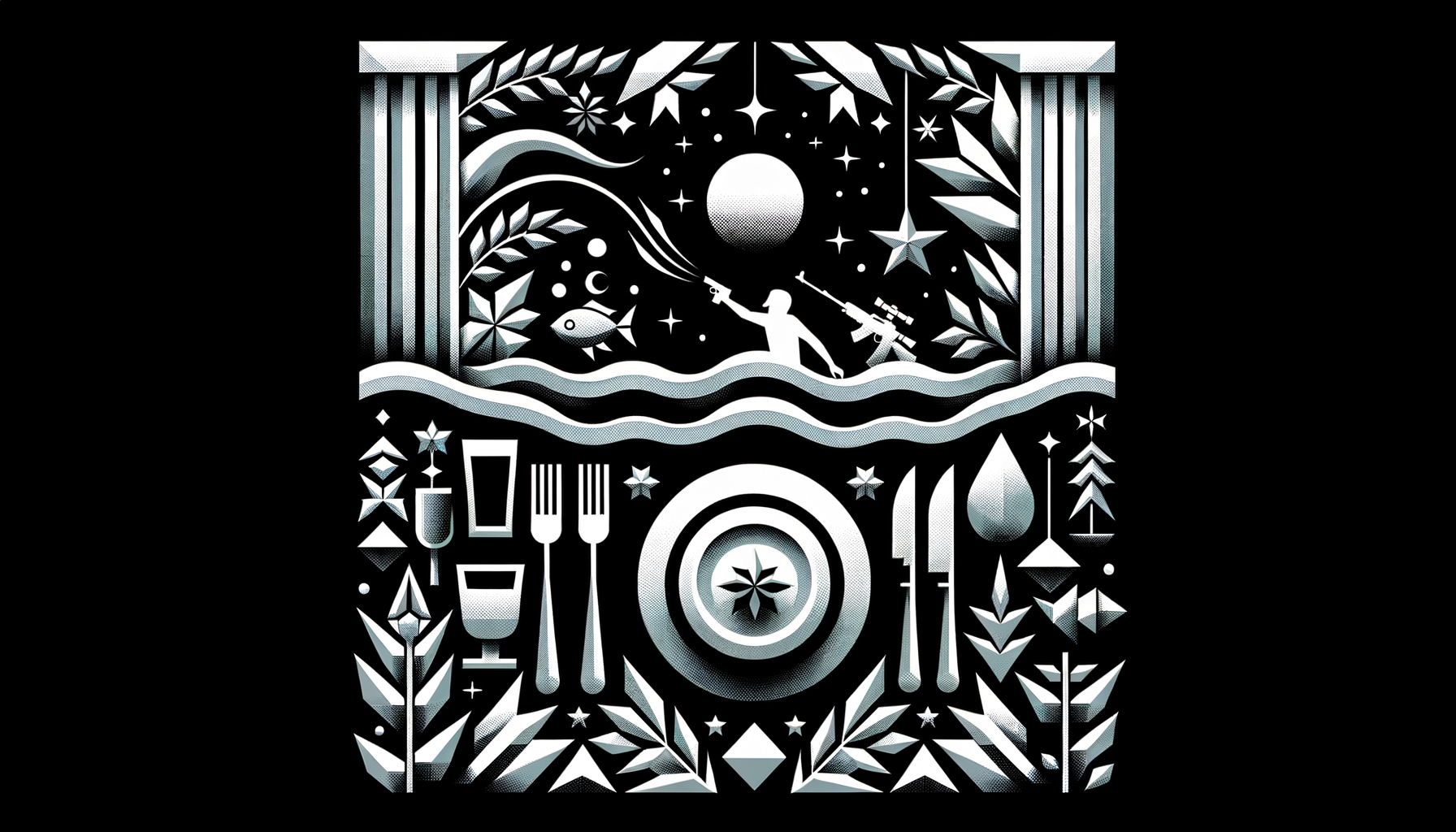I Decided to Risk Everything – on Dinner
There’s an old Greek saying that’s haunted me since childhood: “A ship in the harbor is safe, but that’s not what ships are built for.” It’s the kind of platitude your uncle pulls out when he’s three glasses deep into a bottle of ouzo and wrestling with his midlife crisis. But like most ancient wisdom, it lingers, stubborn and persistent, daring you to test its truth.
For me, life has always been about balancing on the edge of safe harbors and uncharted waters. I like a good gamble, but not when it comes to matters of the heart. Or at least, I didn’t. Then came June, and my version of a leap—the kind I imagine Zeus himself would’ve smirked at approvingly.
Let me set the scene: Santorini, a crisp summer evening, the sort of golden hour that makes you feel like life itself has been airbrushed. I was managing the boutique hotel at the time, so most of my days were spent handling requests for private terraces or Instagram-friendly sunset angles. But that night, my focus wasn’t on curated experiences. It was on her.
Chapter One: Leaping Without a Safety Net
She was French—let’s call her Juliette because that feels poetic, doesn’t it? We’d met at my hotel when her group checked in, trailing their continental chicness and the scent of lavender perfume. Juliette wasn’t simply radiant; she was radiant with opinions. A guest whose first question was about Plato’s Symposium, not Wi-Fi passwords, was a rarity. Over the course of her stay, we struck up short conversations—about art, philosophy, whether Aristotle’s concept of happiness as a virtuous activity was complete nonsense. As these chats grew longer, I convinced myself it was simply a professionally polite rapport. Spoiler: It wasn’t.
The day before her departure, I knew I had two choices. One, I could wish her “safe travels” and leave her as one of those wistful “what ifs” that catch at you in the quiet hours of the night. Or two, I could invite her to dinner. Not as her concierge or the guy who brought her extra pool towels—but as Dimitri, the human version of a ship miles away from the harbor.
Now, here’s where the risk becomes clear. I’m Greek. Food isn’t just food—it’s a declaration of intent. Extending an invitation on this level is like putting out my soul, lightly grilled and drizzled in olive oil, for someone to critique. A bad dinner can feel like a bad audition for your worth as a person. But I did it. I asked. She paused. Then she smiled.
“Oui.”
Chapter Two: The Art of a High-Stakes First Dinner
The plan? To take her to my friend Giorgos’ small taverna, the kind of hidden gem tourists only find in movies. The stakes are immediately different when your first date is also your last, thanks to her departure plans. There’s no “maybe next weekend” fallback, no “let’s see where this goes.” It’s now or never.
The night unfolded with a kind of electric ease. Giorgos brought us mezze—grilled octopus, tzatziki, tomato fritters—and poured wine like he was trying to set a world record for generosity. The talk took on a life of its own. We didn’t just exchange stories; we swapped fragments of ourselves. I told her about growing up in Athens, running from my mother’s attempts to marry me off into a respectable family business career. She told me about leaving Paris in the aftermath of a breakup, rediscovering the pieces of herself she had forgotten.
Between bites of baklava, she laughed—a laugh so unapologetically joyful that it felt like the kind of sound you’d write music around.
And then came the silence. The good kind, the sort that doesn’t require fixing. It rested there, content, as the stars spread out over us and the Aegean murmured in the background.
Chapter Three: The Unavoidable Crossroads
When we said goodnight, there was no dramatic declaration of undying love, no cliched pledge to uproot our lives for each other. It was simpler than that. We hugged in the moonlight. She promised to write. I promised to write back.
And, reader, we did write. For months, letters swooped between Paris and Santorini, echoing old-fashioned romance in a world of instant gratification. Each note felt like catching a breeze from across the continent, stirring up a longing I hadn’t anticipated. To say we stayed in touch would be an understatement—we built a connection over written words, one trip to visit her in Paris, and then another plunge. This wasn’t just a leap of faith. It was leaping while inventing wings midair.
Three years later, though life gently steered us in different directions, I’m still grateful for that dinner in Santorini. Would I do it again, knowing we wouldn’t traditionally “last”? A thousand times over.
So, What’s the Takeaway?
Here’s the truthbomb: Risking something for love—or the possibility of it—is never a waste. Even when it’s messy. Even when it doesn’t end in “happily ever after.”
If you’re wondering whether to take the leap, here’s my advice:
-
Be real, not rehearsed. Risk is scary enough. Don’t cloud it with overthinking. When I invited Juliette to dinner, I was brutally honest and a little awkward. “I’d like to cook you dinner, but any food poisoning is on Giorgos’ hands, not mine,” I joked. The authenticity worked.
-
Find joy in the moment. Every risk could be the start of a long, winding adventure—or it could be dessert under the stars. Either has value. When you’re not banking on outcomes, the moment itself becomes the treasure.
-
Shoot your shot. Whether it’s dinner, a daring confession, or a madcap proposal, the thing you’re afraid of losing might just be waiting for you to claim it. Or, at the very least, you’ll get a great story to tell.
Somewhere between the flirt and the familiar is where magic lives. Whether it’s in a taverna in Santorini or a café in your hometown, love—in all its forms—asks us to risk being seen, known, and maybe even loved. So, my friend, next time the chance arises, leave the harbor. Go ahead and take that leap.
And if there’s baklava involved, well, so much the better.




















